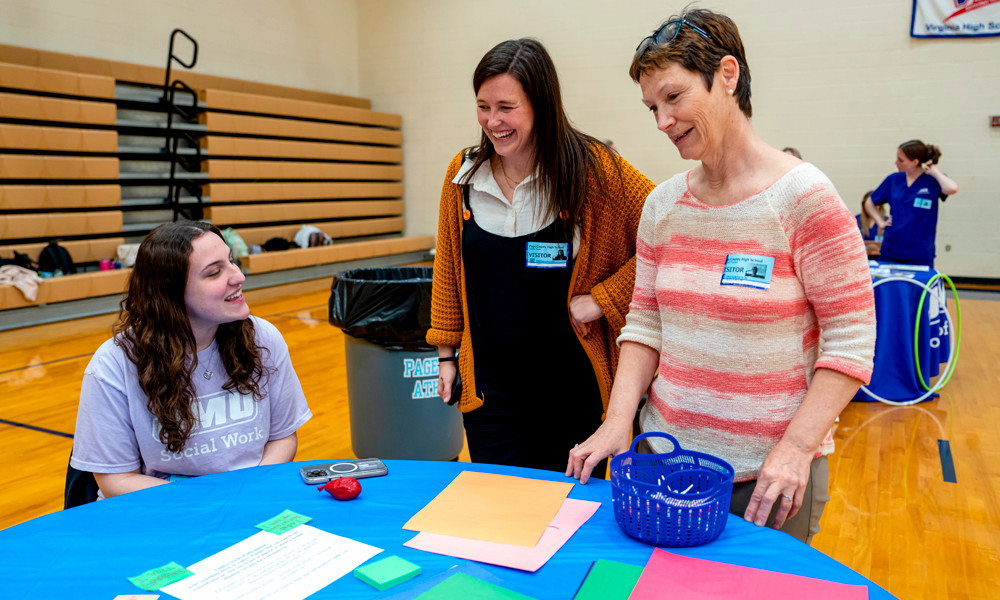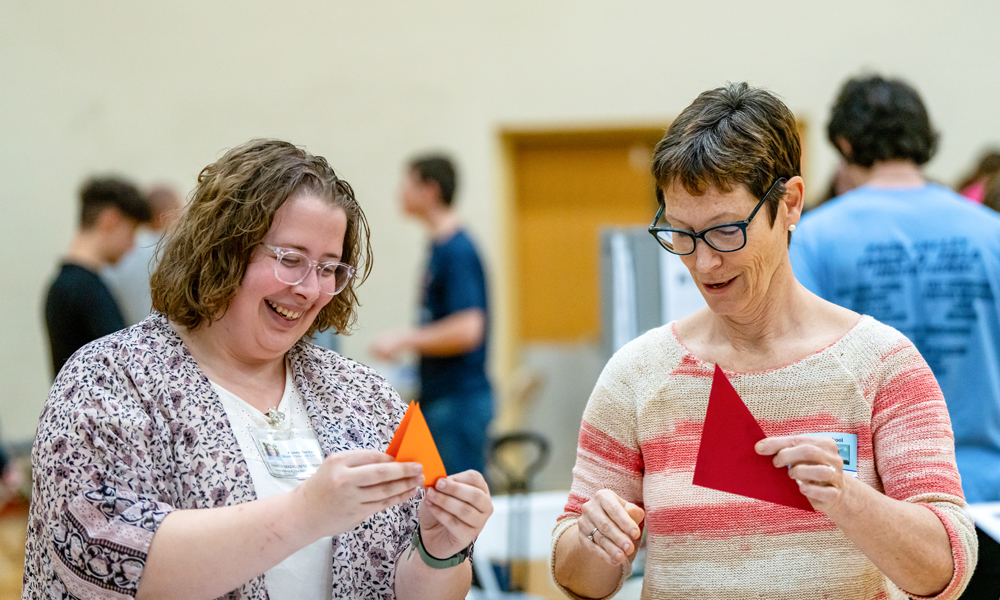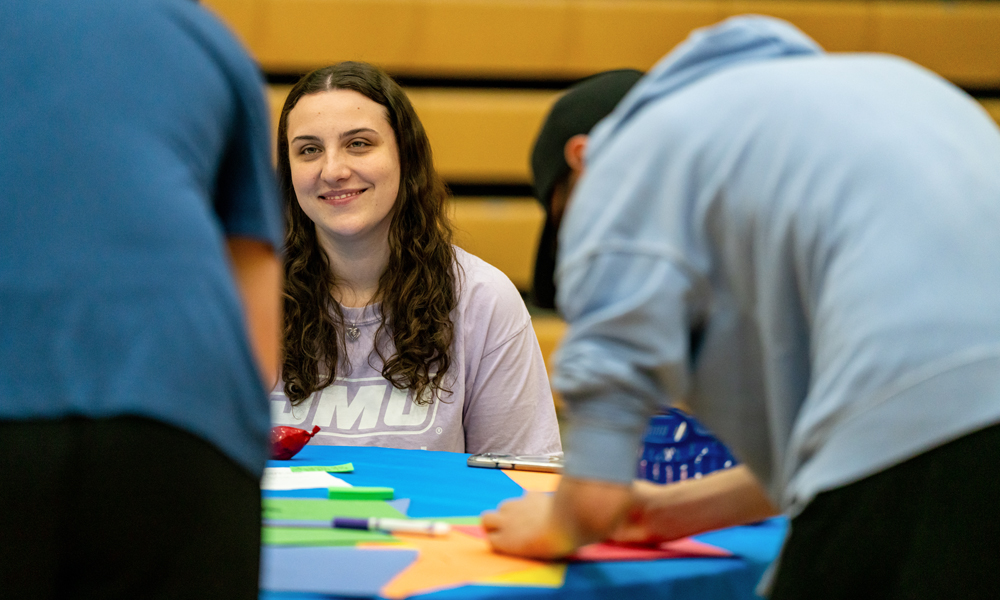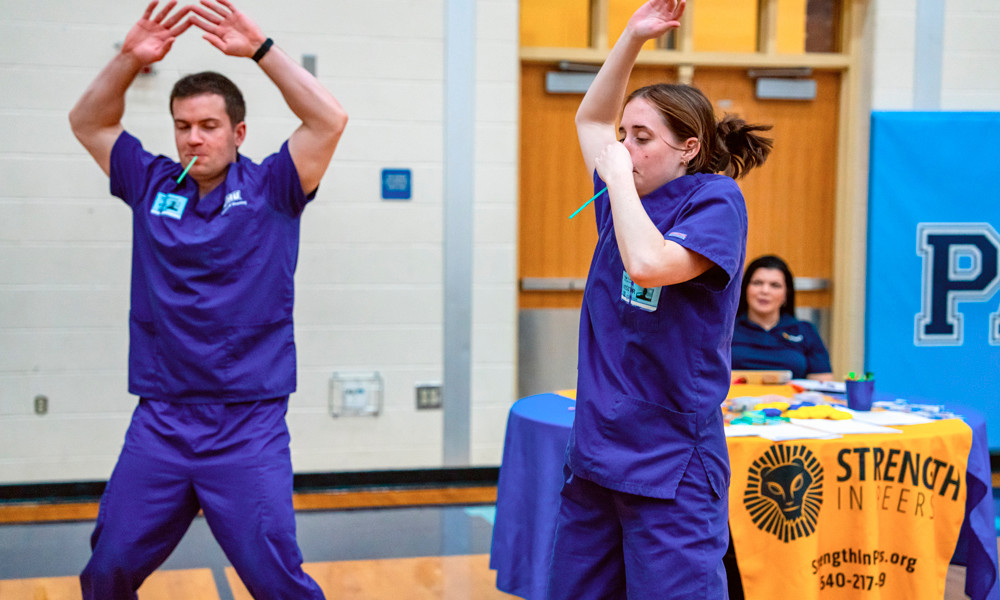REACH seeks to address rural needs by building community capacity
Featured Stories
SUMMARY: JMU partner organization REACH stands for the Rural Engagement and Capacity-building Hub. Together with other community and government programs, its members creatively collaborate and build capacity to tackle issues that prevent people from accessing health care, counseling, housing and transportation.
REACH is about helping communities best use and grow their resources.
“We don’t want to go in and do ‘for’ or ‘to’ communities; we want to work ‘with’ to build their capacity,” said Yvonne Frazier (’83), REACH coordinator and director of Healthy Families Shenandoah and Page Counties. The help she and her team provides communities is “not going to be a REACH-run program; it will be a community-by-community [program],” she said.
Founded in 2019, REACH stands for Rural Engagement and Capacity-building Hub. The program is housed at The Health Place, a Page County, Virginia, satellite office of JMU’s Institute for Innovation in Health and Human Services. Additionally, JMU’s Counseling and Psychological Services Clinic offers accessible mental health services for county residents through The Health Place.
Aided by student interns, REACH collaborates with rural areas to address needs highlighted by residents and organizations, like transportation services, affordable housing and child care. Transportation needs include getting clients to medical appointments, jobs, community programs and continuing-education classes at area colleges.

|
Though community feedback has shown some areas of Shenandoah County, Virginia, also need help with transportation, Frazier said the problem is more pronounced in Page due to its location and its lack of direct access to Interstate 81.
It’s an area of need that Social Work intern Julianne Ulmer (’24) said caught her off guard when she started her capstone field placement with REACH. Growing up in central New Jersey, she said her experiences living and studying in more suburban areas left her unaware of the needs in rural locations that lack public transportation or access to ride-sharing. It’s not unusual for Page County residents to drive 30 minutes or longer to reach a grocery store or a doctor, Ulmer said.
For longtime county resident and JMU assistant nursing professor Tina Switzer (’18M, ’22D.N.P.), improving lives often requires community action. Switzer, who’s also a Page County nurse and part of REACH’s leadership committee, helps community members network and share ideas for expanding outreach, specifically in Page.
Making improvements requires “lots of moving pieces,” she said, such as an ongoing transportation feasibility study with county government. REACH is about “helping communities help themselves,” Switzer said. “[To] connect resources with community members to close the gaps where the community feels they are.”
Solving the complex issue of transportation has been challenging, Frazier said. “The greatest thing was really getting to the health services that they needed.” Additionally, each county has pockets of specific needs that might affect one area more than another based on location and population.

|
One of the surprising responses Frazier received through surveying community leadership was that the Spanish-speaking community in southern Shenandoah County wasn’t accessing available resources. “It’s something for us to work on — how can we make sure we’re providing equitable support for our immigrant communities?” she said. Conversely, in Page, she was pleasantly surprised “how many different people and organizations came together” to address community needs.
Other critical needs that REACH identified were greater access to services to treat behavioral health, mental health and substance use.
Ulmer’s main work through REACH has been assisting in the planning and participating in a Self Care Fair at Page and Luray high schools, helping collaborate with community partners to promote positive mental health for teens. She also interns at Healthy Families, visiting clients’ homes to observe caregiver-child relationships and help families access resources to improve child safety in the home.
“So far, I think it’s been great. I wouldn’t change a thing,” Ulmer said of her internship. “We’re all really great with communicating with each other. It’s a lot of collaboration.”
After graduation, she plans to pursue graduate school in New Jersey. “There’s so many paths I can take with social work,” she explained. But based on her Madison Experience, she said, “I think I want to work with children now.”
Once an intern while attending JMU, Brittney Silvestri (’11) now supervises interns as a resource specialist with Healthy Families. She said her background working for Child Protective Services before becoming a mother of two further fueled her passion for helping families who struggle with food insecurity, employment, immigration paperwork and language barriers.
Beyond her work, she uses her skills to advocate for causes important to her, such as urging her local public school system to add more recess time for elementary-school children. “It was a success, and I hope it stays,” she said.

|
REACH started as a group of JMU faculty and staff from the College of Health and Behavioral Studies and the College of Business who were connected to rural areas, Frazier said. They had all grown up in those areas and had a passion for working with local, rural communities.
“Just like JMU wants to be a national model for engaged learning and community engagement, REACH wants to facilitate these types of opportunities for students and faculty, specifically in rural communities,” Frazier said.
“Our goal is for our approach to rural capacity building be something other universities across the country could learn from, in terms of how do you connect with your local community? What are some of the things that are really important to make that work? What do you put first, and how do you start?”
Frazier has supervised and facilitated student internships and other engaged learning opportunities in Page and Shenandoah for many years. She believes JMU faculty and student involvement, through engaged learning and research, can be invaluable resources for schools, businesses, nonprofits, and municipalities in underserved rural communities. “It’s a win-win-win situation, and REACH is here to help to make it happen.”
REACH received a one-year, federal Health Resources and Services Administration Network Planning grant in Page to help develop a network of residents and organizations to improve health outcomes and well-being. Together, they creatively collaborate and build capacity to tackle issues that prevent people from accessing health care, counseling, housing and transportation.
REACH has applied for a similar HRSA grant to support southern Shenandoah County in obtaining equitable health, wellness and related programming through partnerships, with the hope of increasing rural collaboration around the region. The group hopes to also help these rural partners apply for and receive state and federal funding to further efforts that strengthen their communities.
“We want to be involved in these and other local rural communities for the long haul,” Frazier said. “We’re trying to break down barriers. Sometimes, it’s just making something a little bit easier for people. You know, one less thing to overcome.”
